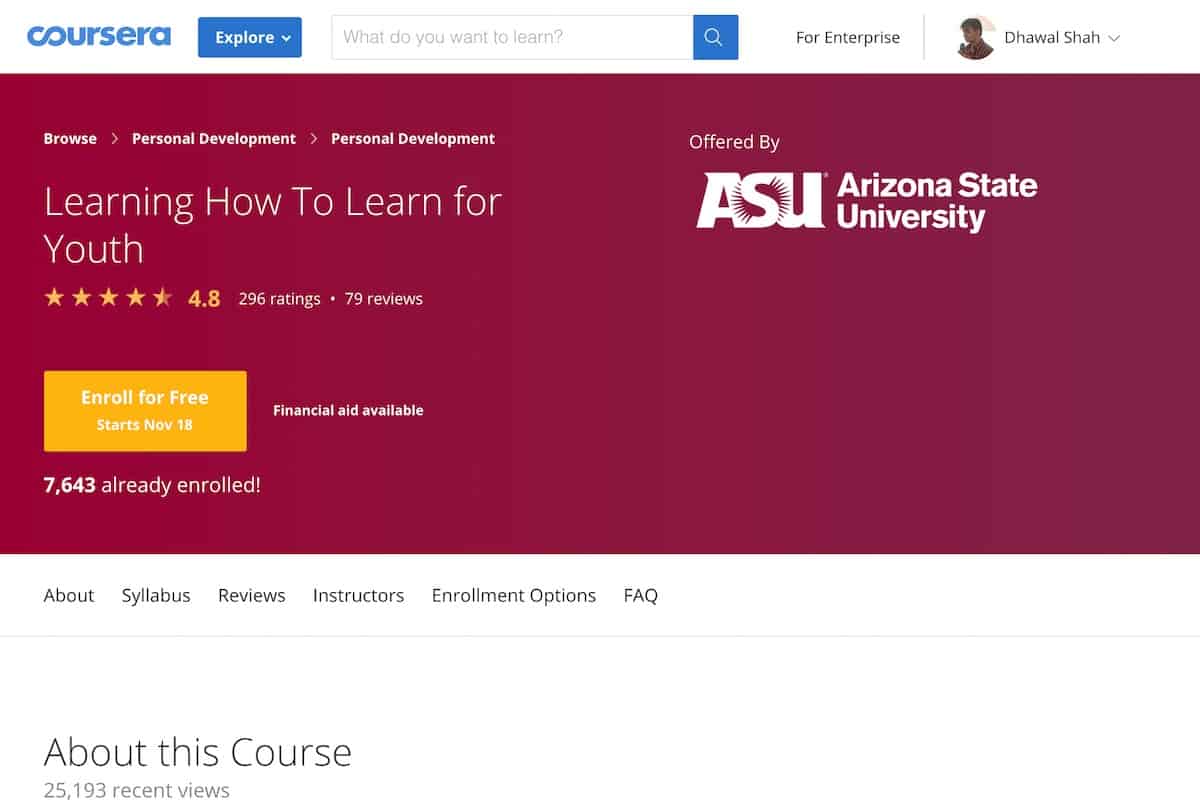On Coursera, Courses now Start Every Day
In an investigation by Class Central, we found that most Coursera courses show a start date that corresponds to the day you visit the course page.

MOOCs started out with a structure parallel to college classroom courses, with a start date and an end date, and specific deadlines for assignments/homework. Usually, these courses were offered once or twice a year, similar to university courses.
Unlike on-campus students who are required to prioritize their learning, most online learners fit their courses around their existing work, family, and social commitments.
Providers began moving to a model where courses are available more often. Back in 2016, Coursera moved to a flexible session-based model – wherein courses are now starting on a regular schedule (monthly/bi-weekly) and learners can carry over their progress to the next session if they fall behind.
According to Coursera, this approach was better than the self-paced model because it allowed for more community interaction. But now, for a majority of MOOCs, the community is no longer a major selling point.
In an investigation by Class Central, we found that most Coursera courses show a start date that corresponds to the day you visit the course page. Out of the 3,800+ courses currently listed on Coursera, over 90% follow this pattern.
Only around 270 courses follow the old flexible session-based model while the rest are finished or haven’t launched yet.
Tags

Suparn Patra







Ajay
Very good information. This is great, cause learner like, working persons, or other students those have their semester ongoing not always have time to keep up with the course timeline. great information
Roy Schweiker
I guess it depends on whether you value the community interaction. If people are working on the same schedule, it’s easier to get prompt homework advice and responses to your opinion posts when you’re still thinking about it.
They also seem to have abolished community TAs which was another source of advice.
Eugene
Together with this there’s another change – Coursera now doesn’t allow you to take tests for free – you need to buy a certificate, which is ridiculous, as I may not want to buy a certificate but want to just test myself.
Suparn Patra
Maybe reading the article “1400+ Coursera Courses That Are Still Completely Free” ( https://www.classcentral.com/report/coursera-free-online-courses/ ) could solve some of your problem.
Suparn Patra
Maybe this could be super useful to you:
For a Limited Time, Coursera Offers Free Certificates for 115 Courses. Here is the Full List: https://www.classcentral.com/report/coursera-free-certificate-covid-19/